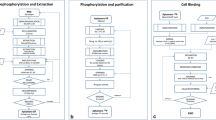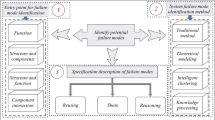Abstract
The goal of adapting methods is to increase the effectiveness of quality management methods. Any method of quality management without its appropriate adaptation to a specific production situation may turn out to be unable to work. This is because, in guides and articles, the authors demonstrate the known practice of applying methods. However, to develop a model or method of applying the method suitable for all is impossible. Therefore, before applying the method, it is necessary to adapt it to specific production conditions. For example, such a simple method as a punch list may be completely ineffective, if some of the information is recorded incorrectly. Each quality management method can be ranked by adaptation capabilities, and if you collect data on the effectiveness of the quality management method (including the number of unsuccessful applications), you can use the reliability theory, where the quality management method will be considered as a product with the appropriate levels of failure and performance, etc. In fact, the adaptation layer is related to the possibilities of applying the quality management method; the wider the range of application, the higher the level of adaptation. Nevertheless, it should be noted that the high adaptability of the method leads to the complexity of interpreting the results of its application. To understand the importance of issues of adaptation in all spheres of life, you can be acquainted with the theory of adaptation, which Hans Selye began to develop by introducing the concept of “adaptation energy” as a factor in the vitality of the organism. In this sense, as soon as the quality management method ceases to change in accordance with the requirements of new technological processes and in accordance with new goals and objectives imposed by consumers or management, the quality management method ceases to be in demand.




Similar content being viewed by others
References
Antipov DV, Akhmetzhanova GV, Antipova OI, Gazizulina AU, Sharov R (2017) Organizational models of teal organizations. Paper presented at the 2017 6th international conference on reliability, Infocom technologies and optimization: trends and future directions, ICRITO 2017, 2018-January, pp 222–230. https://doi.org/10.1109/icrito.2017.8342428
Bogdanovská G, Kačur J, Flegner P, Durdán M (2018) Application of quality management methods in deffect analysis of air conditioner. Paper presented at the international multidisciplinary scientific GeoConference surveying geology and mining ecology management, SGEM, vol 18(2.1), pp 133–139. https://doi.org/10.5593/sgem2018/2.1/s07.017
Demidenko DS, Malinin AM, Litvinenko AN (2017) A new classification of the risks of the quality processes. Paper presented at the Proceedings of the 30th international business information management association conference, IBIMA 2017—vision 2020: sustainable economic development, innovation management, and global growth, 2017-January, pp 2892–2897
Didenko NI, Skripnuk DF, Mirolyubova OV (2017) Big data and the global economy. Paper presented at the Proceedings of 2017 10th international conference management of large-scale system development, MLSD 2017. https://doi.org/10.1109/mlsd.2017.8109611
Gazizulina A, Eskina E, Vasilieva I, Valeeva O (2017) The reasons for the increase in self-organization in companies. Int J Reliab Qual Saf Eng. https://doi.org/10.1142/s0218539317400022
Gazizulina AY, Krasulina OY, Borremans AD, Tveryakov AM, Ostapenko MS, Vasilyeva SE (2018a) Reducing the risk of staff failures. Paper presented at the Proceedings of 2017 IEEE 6th forum strategic partnership of universities and enterprises of Hi-Tech branches (Science. Education. Innovations), SPUE 2017, 2018-January, pp 199–202. https://doi.org/10.1109/ivforum.2017.8246091
Gazizulina AY, Mirolyubova OV, Konakhina NA, Kikkas KN, Grigorieva AA, Danilova SY (2018b) Problems of forming requirements to training of specialists for industrial and economic complex. Paper presented at the Proceedings of 2017 IEEE 6th forum strategic partnership of universities and enterprises of Hi-Tech branches (Science. Education. Innovations), SPUE 2017, 2018-January, pp 196–198. https://doi.org/10.1109/ivforum.2017.8246090
Kovalenko II, Sokolitsyn AS, Sokolitsyna NA (2018) The enterprise’s automated management stability system taking into account its life cycle stage. Paper presented at the proceedings of the 2018 international conference ‘‘quality management, transport and information security, information technologies’’, IT and QM and IS 2018, pp 357–360. https://doi.org/10.1109/itmqis.2018.8524966
Kozlovskiy V, Aydarov D (2017a) Analytical models of mass media as a method of quality management in the automotive industry. Qual Access Success 18(160):83–87
Kozlovskiy V, Aydarov D (2017b) System of customer satisfaction monitoring by new cars in view of perceived quality. Qual Access Success 18(161):54–58
Kozlovskiy VN, Antipov DV, Zayatrov AV (2016) Methodology for analysis and forecasting of cars in operation quality. Actual Probl Econ 186(12):387–398
Kurtc VV, Anufriev IE (2017) Car-following model with explicit reaction-time delay: linear stability analysis of a uniform solution on a ring. Math Models Comput Simul 9(6):679–687. https://doi.org/10.1134/s2070048217060096
Leoro J, Krutitskiy S, Tarasov A, Borovkov A, Aleshin M, Klyavin O (2017) Vehicle dynamics prediction module. Mater Phys Mech 34(1):82–89. https://doi.org/10.18720/mpm.3412017_10
Maillard P (2015) Competitive quality and innovation. Compet Qual Innov. https://doi.org/10.1002/9781119137573
Petrovski SV, Kozlovski VN, Petrovski AV, Skripnuk DF, Schepinin VE, Telitsyna E (2018) Intelligent diagnostic complex of electromagnetic compatibility for automobile ignition systems. Paper presented at the 2017 6th international conference on reliability, Infocom technologies and optimization: trends and future directions, ICRITO 2017, 2018-January, pp 282–288. https://doi.org/10.1109/icrito.2017.8342439
Platovskikh MJ, Vetyukov MM (2017) Self-oscillations of machines and mechanisms. Lect Notes Mech Eng 2017:87–103. https://doi.org/10.1007/978-3-319-53363-6_10
Rodionova EA, Trifonova NV, Epstein MZ, Shvetsova OA (2017) Multicriterial approach to estimation of economic efficiency based on regional innovative cluster. Paper presented at the Proceedings of 2017 20th IEEE international conference on soft computing and measurements, SCM 2017, pp 743–745. https://doi.org/10.1109/scm.2017.7970709
Shvetsova OA, Rodionova EA, Epstein MZ (2018) Evaluation of investment projects under uncertainty: multi-criteria approach using interval data. Entrep Sustain Issues 5(4):914–928. https://doi.org/10.9770/jesi.2018.5.4(15)
Vandenbrande WW (2019) Quality for a sustainable future. Total Qual Manag Bus Excell. https://doi.org/10.1080/14783363.2019.1588724
Ziniakov VY, Gorodetskiy AE, Tarasova IL (2016a) Control of vitality and reliability analysis. Stud Syst Decis Control 49:193–204. https://doi.org/10.1007/978-3-319-27547-5_18
Ziniakov VY, Gorodetskiy AE, Tarasova IL (2016b) System failure probability modelling. Stud Syst Decis Control 49:205–215. https://doi.org/10.1007/978-3-319-27547-5_19
Acknowledgements
This work was supported by Ministry of Science and Higher Education of the Russian Federation (Grant No. 5-100-2020).
Author information
Authors and Affiliations
Corresponding author
Additional information
Publisher's Note
Springer Nature remains neutral with regard to jurisdictional claims in published maps and institutional affiliations.
Rights and permissions
About this article
Cite this article
Klochkov, Y.S., Tveryakov, A.M. Approaches to the improvement of quality management methods. Int J Syst Assur Eng Manag 11 (Suppl 2), 163–172 (2020). https://doi.org/10.1007/s13198-019-00939-x
Received:
Revised:
Published:
Issue Date:
DOI: https://doi.org/10.1007/s13198-019-00939-x




